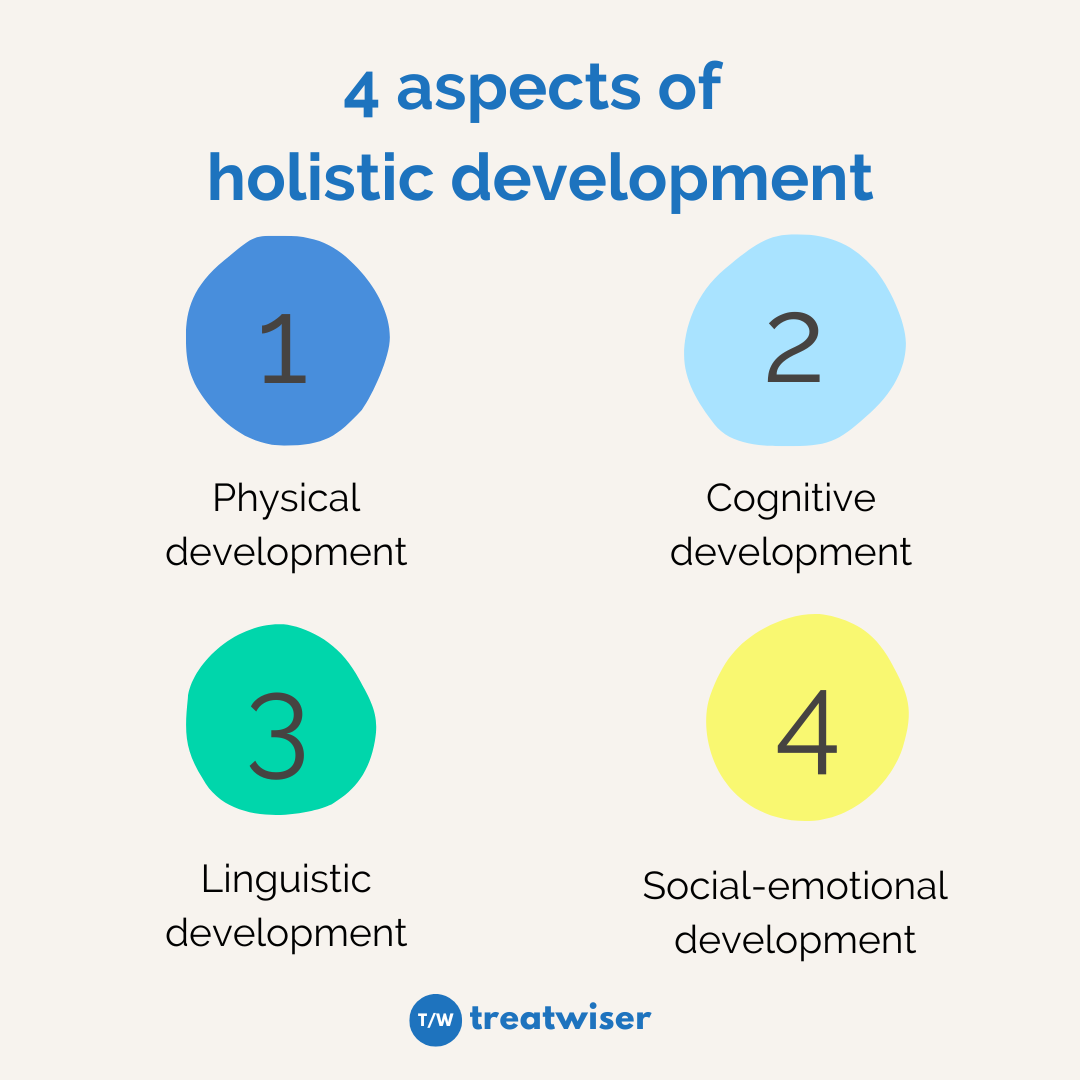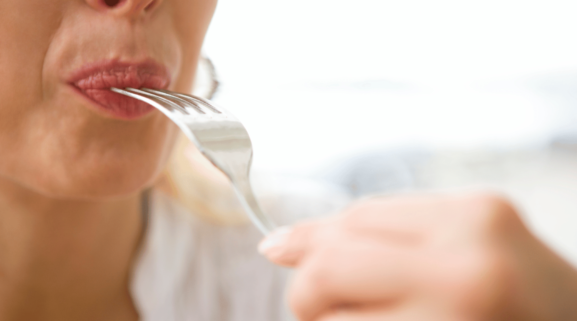Every parent wants to do their best to nurture their child’s development.
But with so much conflicting parenting information available, how do you best equip your little one for success?
In this article, we’ll discuss the role of holistic development in early years to help cognitive, linguistic, physical, emotional, and social growth.
What is holistic development, and who is it for?
Holistic development is an approach to early and late childhood development that focuses on the whole child – mind, body, and spirit.
While “old-school” approaches to childhood development may focus solely on intellectual abilities, holistic development focuses on various developmental factors. This includes physical, cognitive, emotional, linguistic, and social skills.
Holistic development focuses on three developmental stages in children:
- Infancy and toddlerhood
- Early childhood
- Middle to late childhood
It’s a well-rounded approach that stimulates all areas of a rapidly growing brain.
What are the 4 aspects of holistic development?
Children’s development is holistic when it focuses on 4 fundamental aspects of mental and physical development.
- Physical development: This refers to the development of fine and gross motor skills and healthy physical growth. Physical games, sports, a whole food diet, and good sleep are all essential for holistic physical development.
- Cognitive development: This area develops learning, focus, problem-solving, and memory skills. It also helps children to find meaning in the world and think flexibly.
- Linguistic Development: This focuses on speech, listening, language, and literacy skills.
- Social-emotional development: This helps children understand and communicate their emotions and develop self-awareness. Children learn to recognize emotions, build empathy, and negotiate with and respect others.

Why is holistic development important?
Holistic development is important because children’s brains need appropriate stimulation for optimal psychological, physical, social, and emotional well-being.
Holistic development prepares children to meet life demands with the necessary knowledge, communication skills, emotional intelligence, socially-awareness, and resilience.
It lays the foundation for children to adapt to challenges, understand their emotions, and manage social relationships.
What’s an example of holistic development?
Research has found physical education (PE) using different forms of sport is ideal for holistic development. It focuses on the “whole” child, improving motor skills and social-emotional development (1). An example of PE for holistic development may be a children’s yoga class. This allows your child to explore their body, feel independent and confident, and learn concentration, balance, and coordination.
Another example of holistic development may be art therapy or a music class. This stimulates their creativity, develops their motor skills, and allows them to learn social and emotional skills when working in groups.
What activities support holistic development?
Parents and educators can stimulate holistic development by creating a safe play environment that encourages a healthy imagination and promotes independence.
Spending time in nature is also essential for holistic development as it encourages sensory development and stimulates different brain areas.
Other activities that support the 4 pillars of holistic development include:
Physical development activities may include hide and seek, arts and crafts, and learning a sport. Time playing and exploring outdoors is also crucial for holistic physical development.
Cognitive development activities include reading, puzzles, arts and crafts, and playing construction games like Lego. Educational outings to museums, the aquarium, or the zoo can stimulate cognitive development.
For linguistic development, reading and talking to the child, singing songs together, puppet shows, and watching educational TV programs stimulates their language skills. It’s also helpful to ask children open-ended questions and allow them to think through the answers.
To ensure social-emotional development, teach your child about different emotions and allow them to express the full range of emotions.
Picnics, meals, and outings with friends and family may help develop their social skills, empathy, and how to share with others. Time in nature teaches children to care for their environment.
How to get started
If you want to take a holistic approach to your child’s growth, seek out books on the subject, find a doctor who understands holistic development and talk to educators who specialise in holistic development.
Ask yourself if your child’s activities are contributing to their physical, linguistic, cognitive, and social-emotional development. Give your child positive feedback whenever they learn something or try a new activity.
Most importantly, allow your child the freedom to explore their interests. Identifying their interests and letting these develop is an opportunity for holistic development in early years.
Resources
- Condello et al. (2021). Fostering Holistic Development with a Designed Multisport Intervention in Physical Education. Int J Environ Res Public Health.
DISCLAIMER: The Site cannot and does not contain medical / health advice. The medical / health information is provided for general informational and educational purposes only and is not a substitute for professional advice. Accordingly, before seeking any form of medical advice, diagnoses or treatment based upon such information, we encourage you to consult with your GP or other qualified health practitioner. You must never disregard professional medical advice or delay in seeking it because of something mentioned on this Site. The use or reliance of any information contained on the Site is solely at your own risk.


